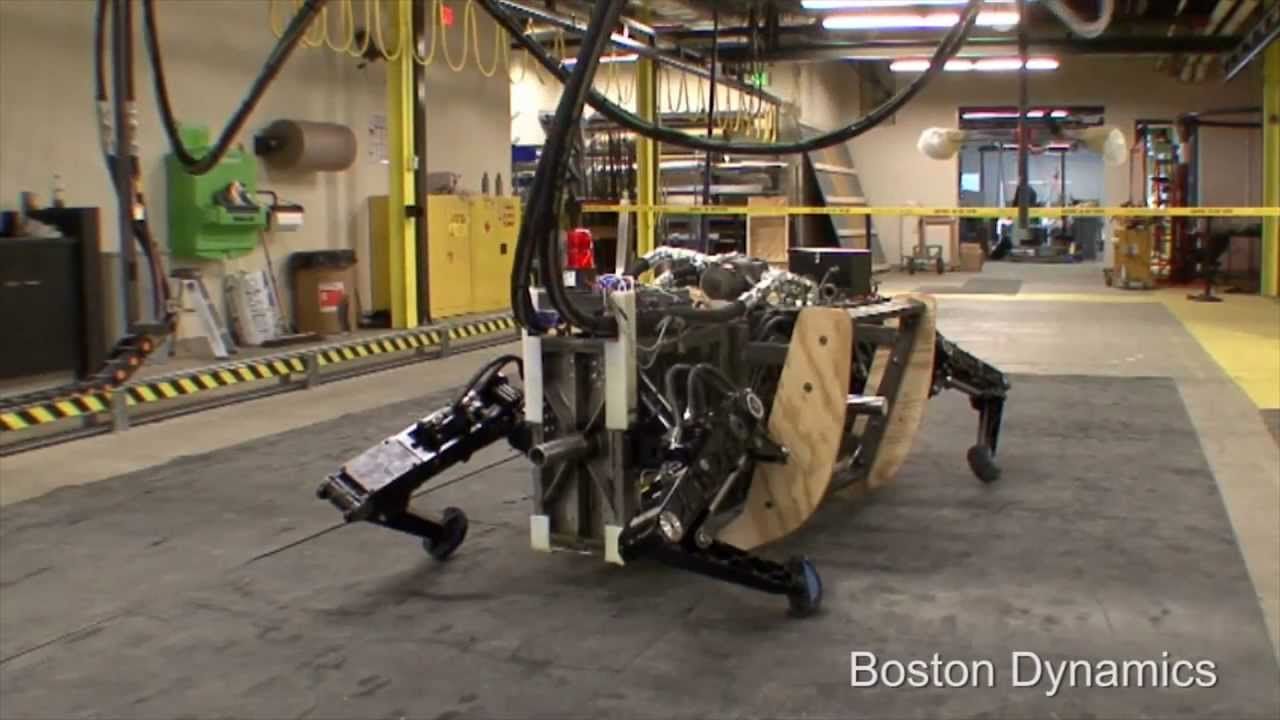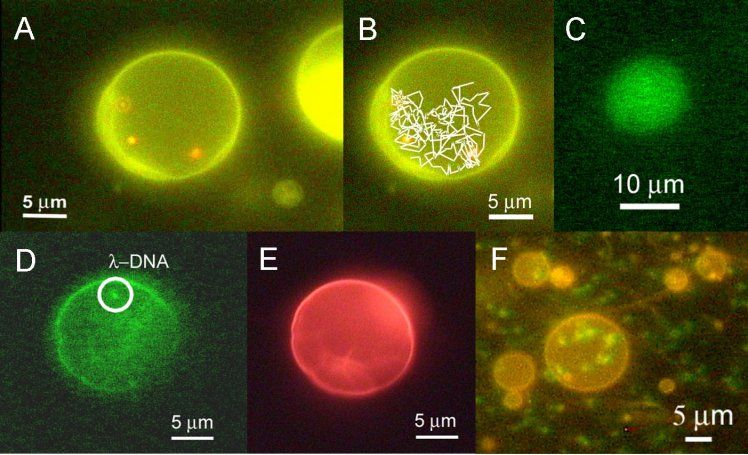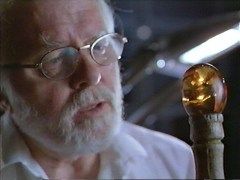Advances in robotics and say that in less than fifty years “organic” (man) and the “mecca” (robots) supposedly coexist harmoniously in a civilization that if I imagine there will be little to change his ethics. MAKI360.

Advances in robotics and say that in less than fifty years “organic” (man) and the “mecca” (robots) supposedly coexist harmoniously in a civilization that if I imagine there will be little to change his ethics. MAKI360.
Dr Michael Fossel comments on the recent Bioviva announcement of the first human gene therapy against aging.
The other day, a friend of mine, Liz Parrish, the CEO and founder of BioViva, made quite a splash when she injected herself with a viral vector containing genes for both telomerase and FST. Those in favor of what Liz did applaud her for her courage and her ability to move quickly and effectively in a landscape where red tape and regulatory concerns have – in the minds of some – impeded innovation and medical care. Those opposed to what Liz did have criticized her for moving too rapidly without sufficient concern for safety, ethics, or (from some critics) scientific rationale.
Many people have asked me to comment, both as an individual and as the founder of Telocyte. This occurs for two reasons. For one thing, I was the first person to ever advocate the use of telomerase as a clinical intervention, in discussions, in published journal articles, and in published books. My original JAMA articles (1997 and 1998), my first book on the topic (1996), and my textbook (2004) all clearly explained both the rational of and the implications for using telomerase as a therapeutic intervention to treat age-related disease. For another thing, Liz knew that our biotech firm, Telocyte, intends to do almost the same thing, but with a few crucial differences: we will only be using telomerase (hTERT) and we intend to pursue human trials that have FDA clearance, have full IRB agreement, and meet GMP (“Good Medical Production”) standards.
We cannot help but applaud Liz’s courage in using herself as a subject, a procedure with a long (and occasionally checkered) history in medical science. Using herself as the subject undercuts much of the ethical criticism that would be more pointed if she used other patients. Like many others, we also fully understand the urgent need for more effective therapeutic interventions: patients are not only suffering, but dying as we try to move ahead. In the case of Alzheimer’s disease, for example (our primary therapeutic target at Telocyte), there are NO currently effective therapies, a history of universal failure in human trials for experimental therapies, and an enormous population of patients who are currently losing their souls and their lives to this disease. A slow, measured approach to finding a cure is scarcely welcome in such a context.
 https://www.youtube.com/watch?v=YY7f1t9y9a0
https://www.youtube.com/watch?v=YY7f1t9y9a0
“The world is facing some huge problems. There’s a lot of talk about how to solve them. But talk doesn’t reduce pollution, or grow food, or heal the sick. That takes doing. This film is the story about a group of doers, the elegantly simple inventions they have made to change the lives of billions of people, and the unconventional billionaire spearheading the project.”
Tags: Change, engineering, Experts, Tinkering

Fear of scientists “playing god” is at the centre of many a plot line in science fiction stories. Perhaps the latest popular iteration of the story we all love is Jurassic World (2015), a film I find interesting only for the tribute it paid to the original Michael Crichton novel and movie Jurassic Park.
Full op-ed from h+ Magazine on 7 October 2015 http://hplusmagazine.com/2015/10/07/opinion-synthetic-biolog…f-mankind/
 In Jurassic Park, a novel devoted to the scare of genetic engineering when biotech was new in the 1990s, the character of John Hammond says:
In Jurassic Park, a novel devoted to the scare of genetic engineering when biotech was new in the 1990s, the character of John Hammond says:
Continue reading “h+ Magazine: Synthetic Biology — The True Savior of Mankind” »
Warning that rapid advances in genetics make “designer babies” an increasing possibility, a United Nations panel today called for a moratorium on “editing” the human genome, pending wider public debate lest changes in DNA be transmitted to future generations or foster eugenics.
While acknowledging the therapeutic value of genetic interventions, the panel stressed that the process raises serious concerns, especially if the editing of the human genome should be applied to the germline, thereby introducing hereditary modifications.
“Gene therapy could be a watershed in the history of medicine and genome editing is unquestionably one of the most promising undertakings of science for the sake of all humankind,” the UN Educational, Scientific and Cultural Organization (UNESCO) said in a news release on a report by its International Bioethics Committee (IBC).
Human embryos are at the center of a debate over the ethics of gene editing (credit: Dr. Yorgos Nikas/SPL)
The first application to pursue CRISPR/Cas9 genome-editing research in viable human embryos has been submitted to the UK’s fertility regulator by a team of researchers affiliated with the Francis Crick Institute in London.
We welcome Sam Wallace’s contribution to the discussion on a proposed ban on offensive autonomous weapons. This is a complex issue and there are interesting arguments on both sides that need to be weighed up carefully.
His article, written as a response to an open letter signed by over 2500 AI and robotics researchers, begins with the claim that such a ban is as “unrealistic as the broad relinquishment of nuclear weapons would have been at the height of the cold war.”
This argument misses the mark. First, the letter proposes not unilateral relinquishment but an arms control treaty. Second, nuclear weapons were successfully curtailed by a series of arms-control treaties during the cold war, without which we might not have been here to have this conversation.
The head of DeepMind says the rise of artificial intelligence could be as important as the industrial revolution – and it must put ethics at its heart.
Progress always seems to ride a slippery slope. Innovations generally bring a plethora of potential benefits and just as many dangers, the obvious and the hidden. Technologies that tamper with our biological constructs is well underway in the neuro- and biotech industries. Historically, innovations in medicine have usually been beneficial on the aggregate.
But these new breakthroughs go beyond preventing and healing pre-existing causes. Transhuman technologies hold the promise of enhancing who we are as individuals and potentially as an entire species, and the decisions surrounding these technologies are far from simple. Dr. Nayef Al-Rodhan, a philosopher, neuroscientist, and director of the Geneva Center for Security Policy, believes we should be acting now to prepare for the inevitable and the unpredictable ramifications.
Considering our mixed track record as a species in rolling out groundbreaking innovations, discussing and finding potential solutions to many of the hidden dangers, and obvious ones, seems more than reasonable. One of the more puzzling questions is, where do we begin to have a pragmatic conversation on the ethics of these technologies?
There are plenty of theories about what drive human decisions, not least because human morality is infinitely complex and our minds crave frames through which to make sense of chaos. Dr. Al-Rodhan has his own conception of what drives human motivations. He makes meaning using the lens of “5 P’s” – Power, Pride, Profit, Pleasure, and Permanence – which he posits drive human motivations. “This is my view, the foundation of my outlook…this perceived emotion of self interest drives our moral compass.”
Continue reading “The Imminence of Transhuman Technologies” »